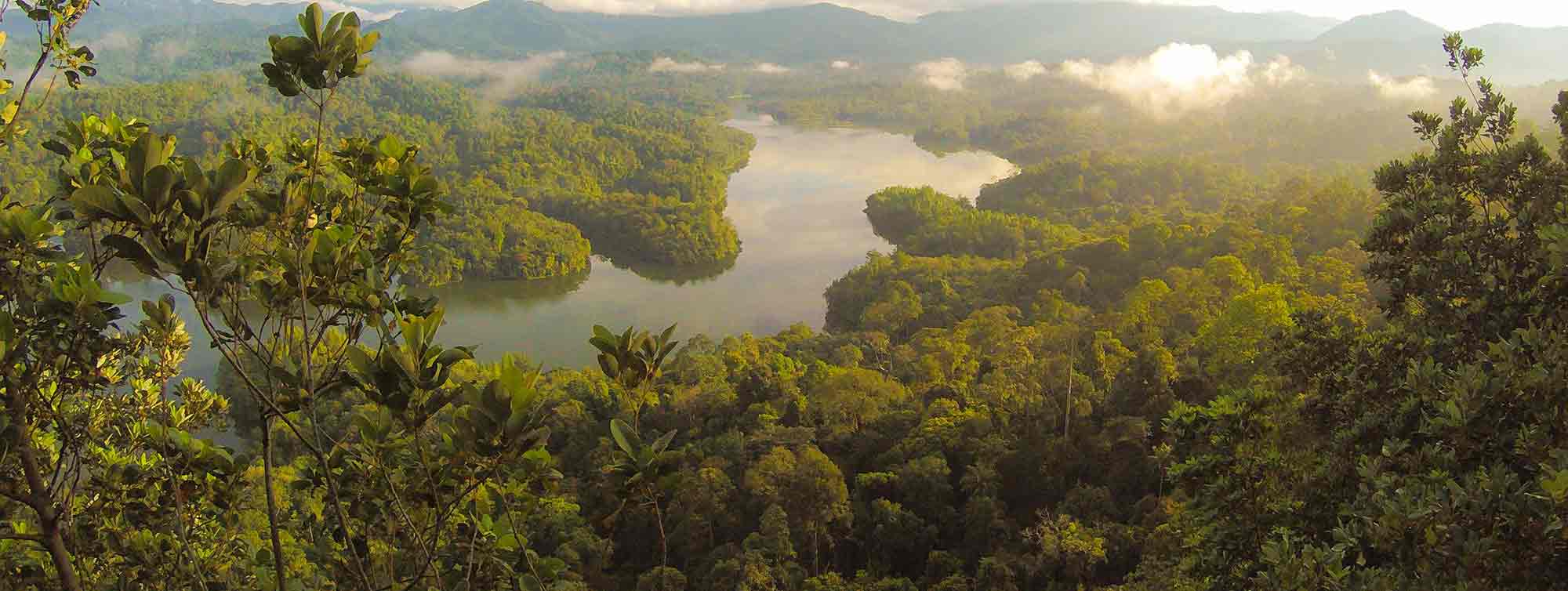423 Resources
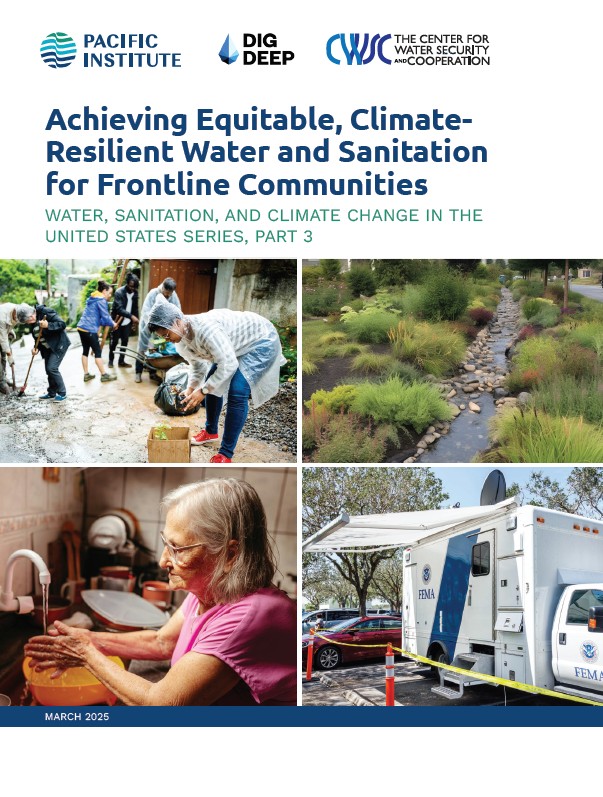
Achieving Equitable, Climate-Resilient Water and Sanitation for Frontline Communities: Water, Sanitation, and Climate Change in the United States, Part 3
March 18, 2025 | publication
Communities, local, state, and federal agencies, Tribes, NGOs, and others are working to create equitable, climate-resilient water and sanitation in the US. This report outlines over 100 actionable strategies for frontline communities’ water and sanitation systems in the face of intensifying climate impacts while addressing systemic inequities.
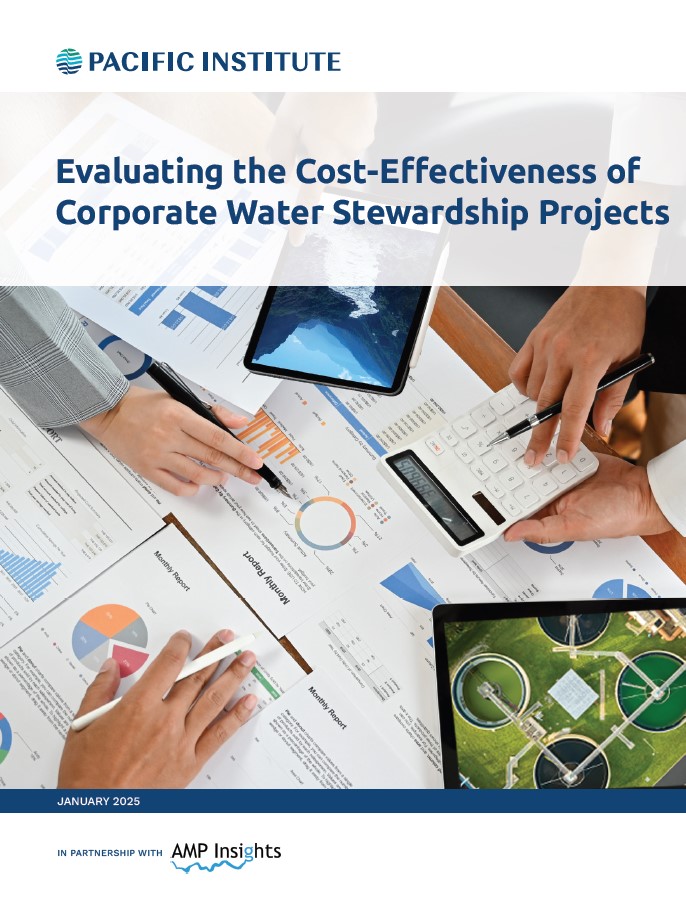
Evaluating Cost-Effectiveness of Corporate Water Stewardship Projects
January 29, 2025 | publication
To achieve ambitious and time-bound water stewardship goals, companies often invest in different projects spanning their operations, value chains, and local watersheds. When companies have a number of different projects to choose from, they may evaluate them against multiple criteria, including geographic scope, feasibility, innovation, and costs.
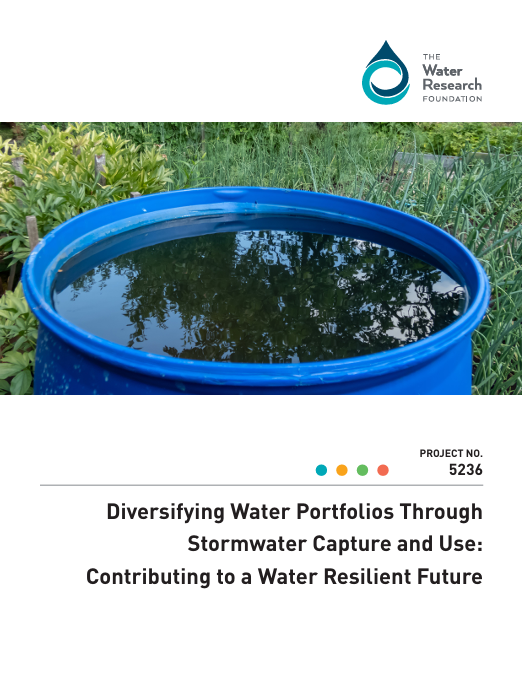
Diversifying Water Portfolios through Stormwater Capture and Use: Contributing to a Water Resilient Future
November 12, 2024 | publication
In the face of a changing climate, shifting populations, and other uncertainties, urban stormwater capture and use can add flexibility and diversity to water supply portfolios. Once seen as a nuisance, stormwater is part of a shifting paradigm that recognizes it as an asset.
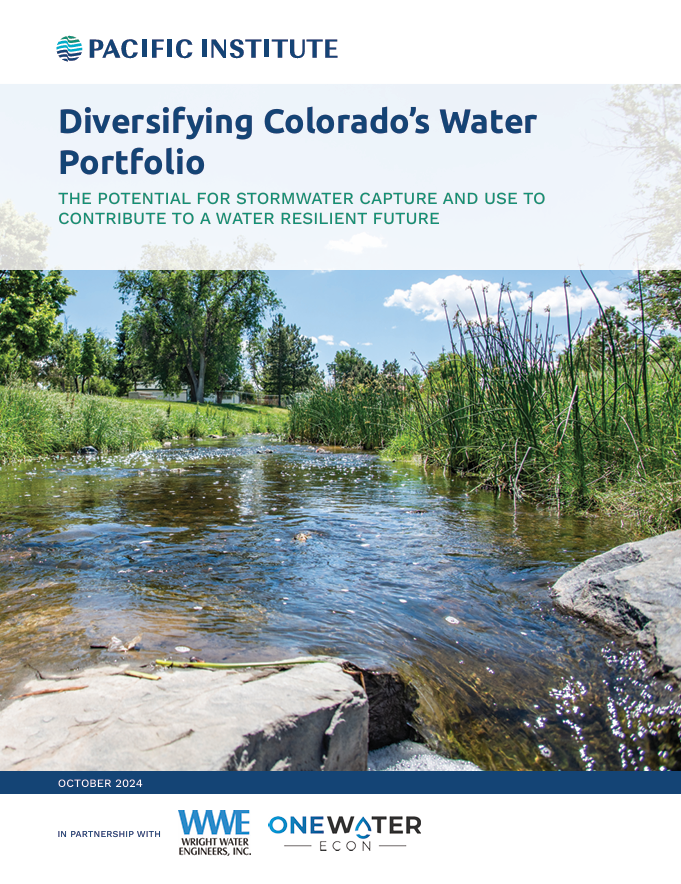
Diversifying Colorado’s Water Portfolio: The Potential for Stormwater Capture and Use to Contribute to a Water Resilient Future
October 23, 2024 | publication
The 2023 Colorado Water Plan estimates that by 2050 there will be a municipal and industrial water supply gap of between 250,000 and 750,000 acre-feet per year. “Diversifying Colorado’s Water Portfolio: The Potential for Stormwater Capture and Use to Contribute to a Water Resilient Future” seeks to advance understanding of the extent to which rainwater harvesting and stormwater capture in urban areas can fill this gap.
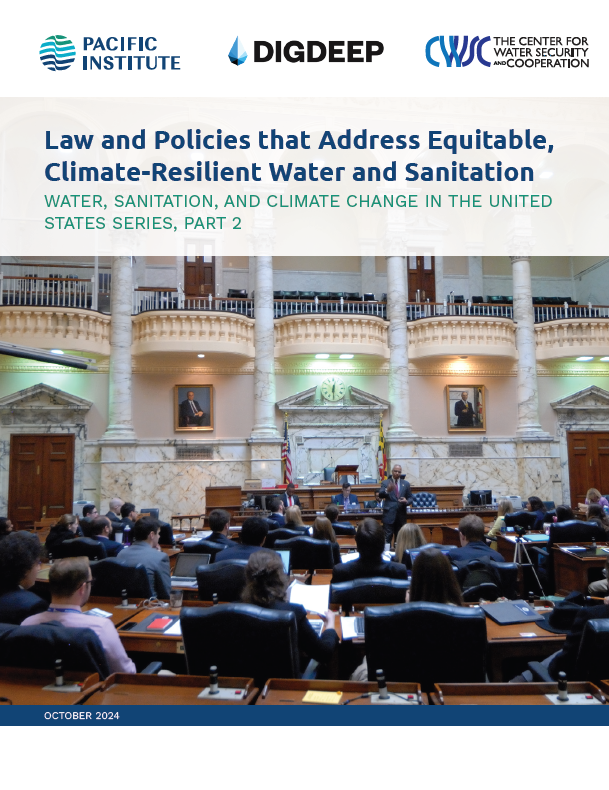
Law and Policies that Address Equitable, Climate-Resilient Water and Sanitation: Water, Sanitation, and Climate Change in the United States, Part 2
October 21, 2024 | publication
This report, Part 2 in the Water, Sanitation, and Climate Change in the United States series, reveals existing laws and policies fail to protect water and sanitation systems from climate change impacts in frontline communities across the United States.
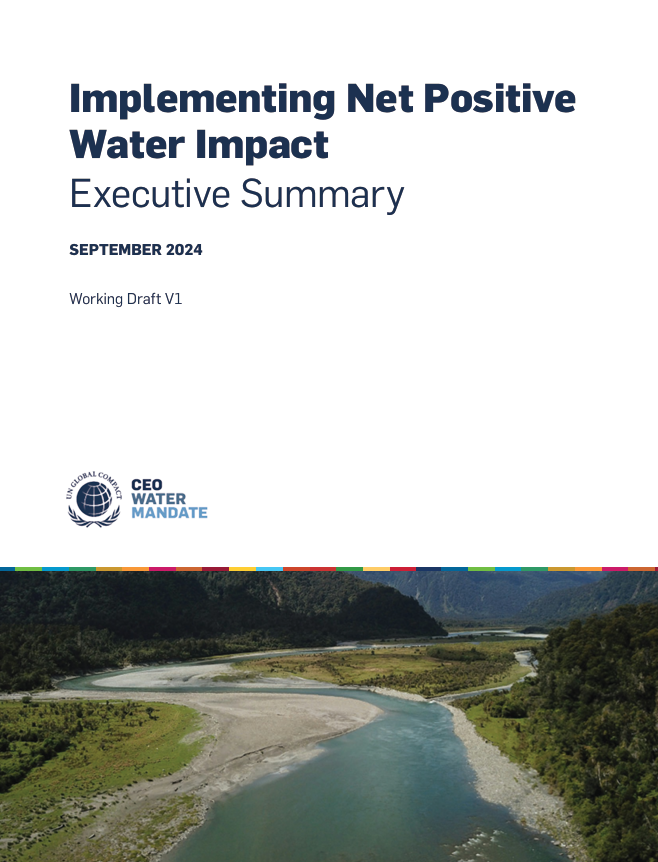
Implementing Net Positive Water Impact
September 27, 2024 | publication
The CEO Water Mandate has created a comprehensive set of tools to help you implement Net Positive Water Impact as a part of your strategy.
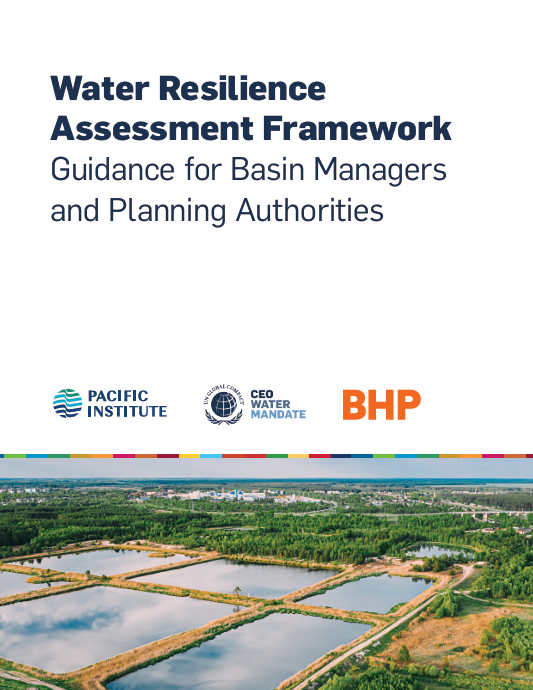
Water Resilience Assessment Framework Guidance for Basin Managers and Planning Authorities
August 29, 2024 | publication
By fostering smarter resilience strategies, effective actions and clear monitoring, this document empowers BMPA in building systemwide resilience in three ways.
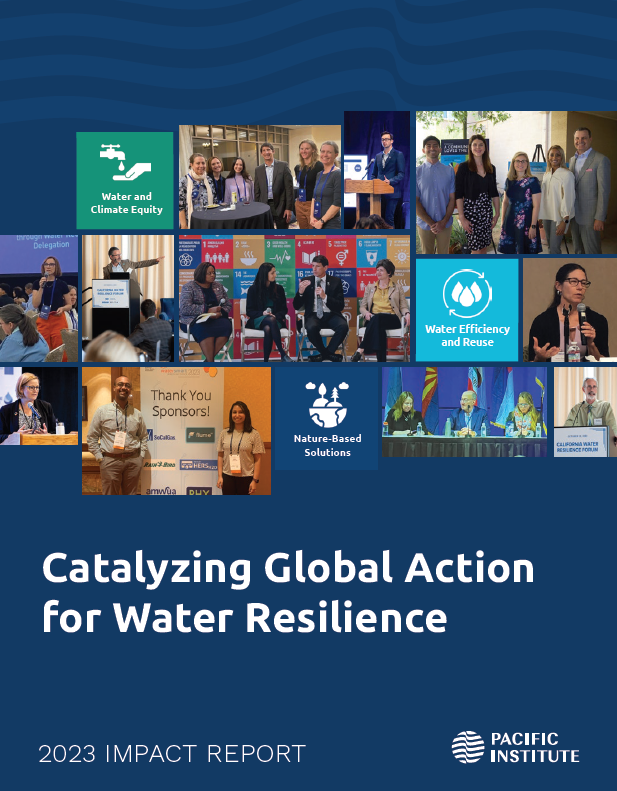
Pacific Institute 2023 Impact Report: Catalyzing Global Action for Water Resilience
August 26, 2024 | publication
In 2023, the Pacific Institute has once again proven to be at the forefront of addressing the world's most pressing water issues with innovative and science-based solutions. Amid evolving environmental and geopolitical challenges, including record-breaking climate events and increasing water-related conflicts, our mission to catalyze water resilience has never been more crucial.
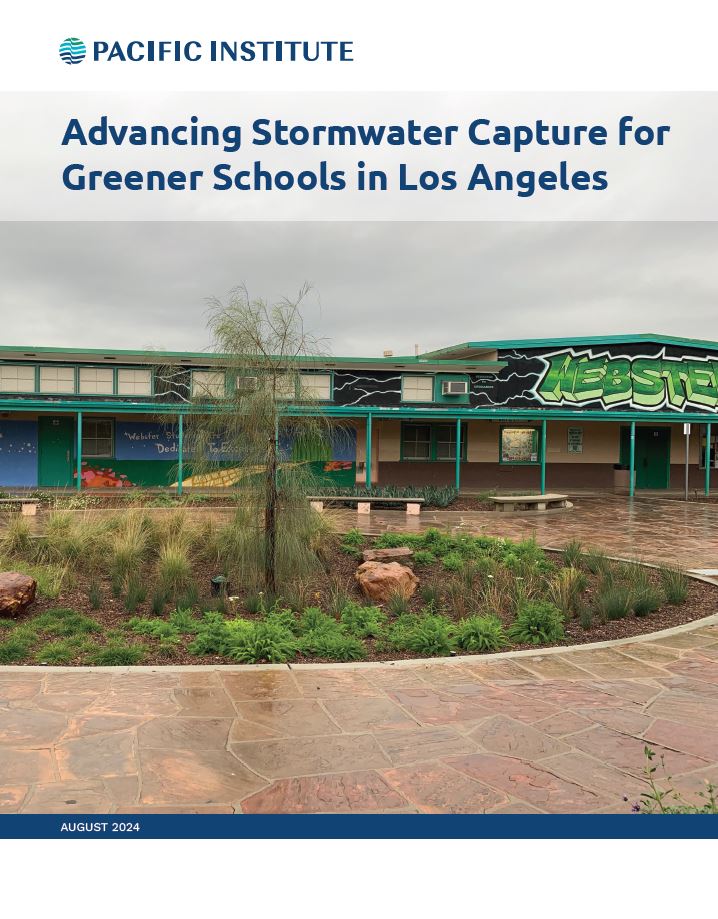
Advancing Stormwater Capture for Greener Schools in Los Angeles
August 15, 2024 | publication
This report, "Advancing Stormwater Capture for Greener Schools in Los Angeles," reveals the significant potential for stormwater capture on public school campuses in Los Angeles County. It estimates that the total stormwater runoff generated from LA County public school campuses is approximately 3.15 billion gallons (9,510 acre-feet) per year. Of this amount, about 2.04 billion gallons (6,190 acre-feet) per year could potentially be captured to augment water supplies and help green school campuses.
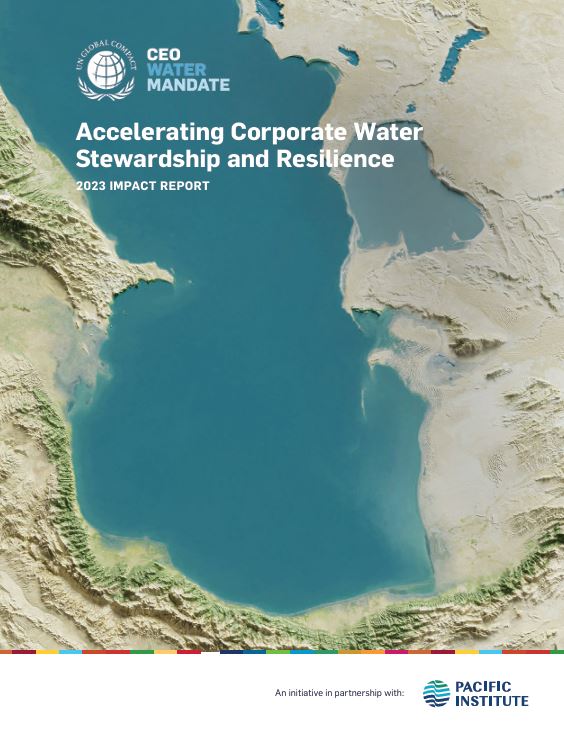
2023 CEO Water Mandate Impact Report
August 13, 2024 | publication
As the CEO Water Mandate, a partnership of the UN Global Compact and the Pacific Institute to advance corporate water stewardship, advances on its ambitious 2030 goals to build a water-resilient future, we are excited to share this year’s Impact Report.
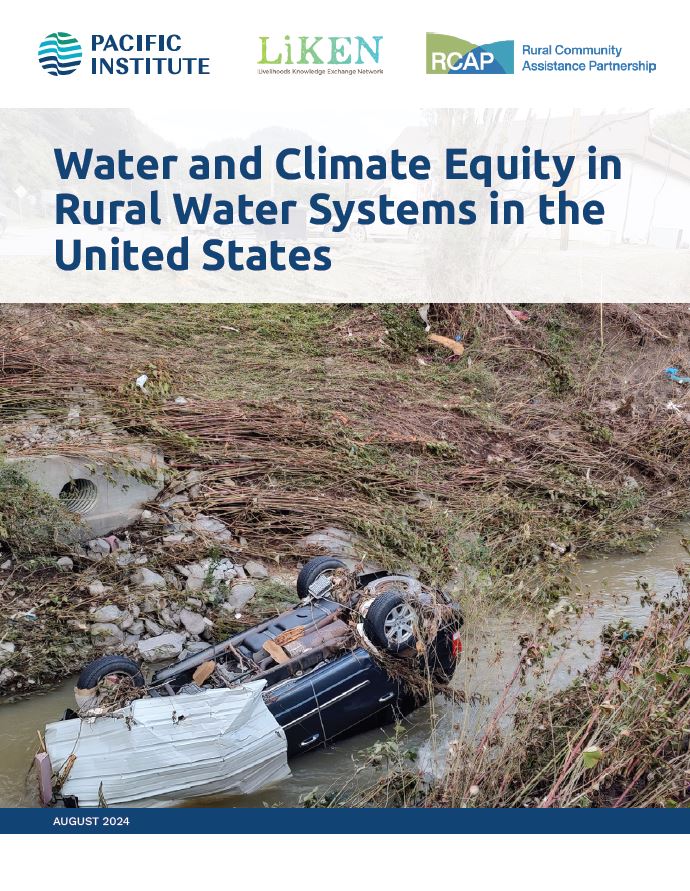
Water and Climate Equity in Rural Water Systems in the United States
August 7, 2024 | publication
Climate change is leading to devastating consequences for water and wastewater systems in rural communities across the United States. Many factors converge to create inequitable risks, and decision-makers must grapple with complex realities when devising and implementing strategies to build resilience.
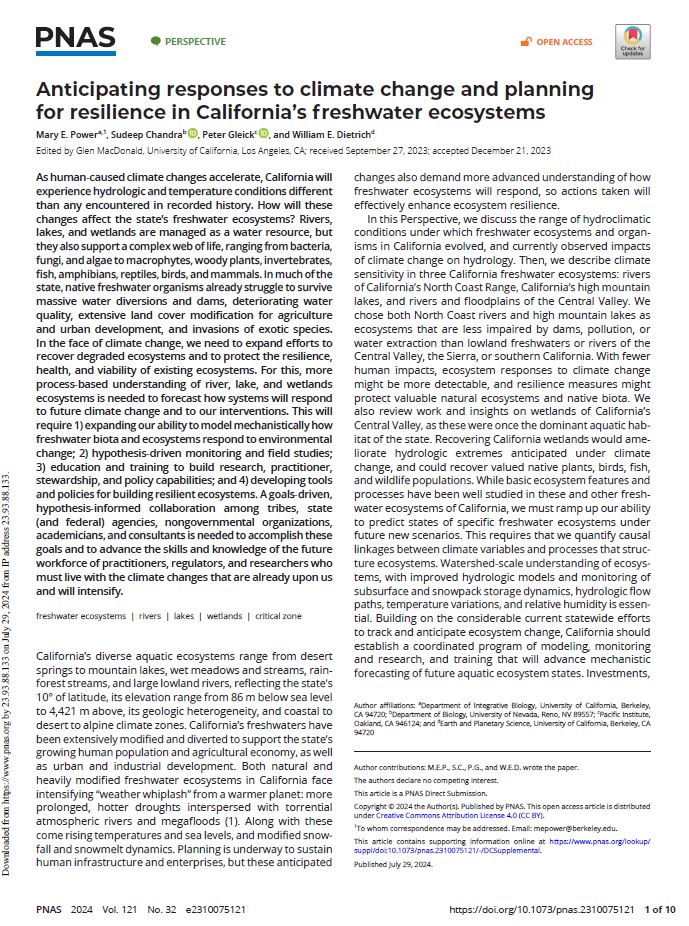
Anticipating Responses to Climate Change and Planning for Resilience in California’s Freshwater Ecosystems
July 29, 2024 | publication
In this peer-reviewed paper, Pacific Institute Senior Fellow and Co-Founder Dr. Peter Gleick and co-authors Mary Power, Sudeep Chandra, and William Dietrich discuss potential solutions for resilience in California's freshwater ecosystems.
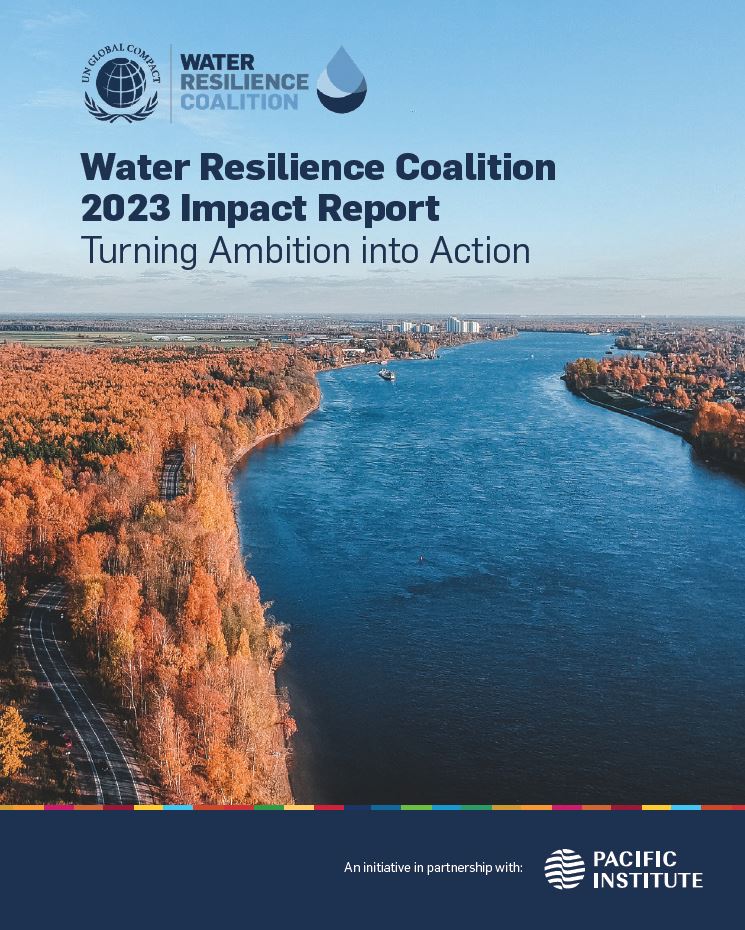
Water Resilience Coalition 2023 Impact Report: Turning Ambition into Action
June 3, 2024 | publication
The Water Resilience Coalition has released its 2023 Impact Report "Turning Ambition into Action," highlighting the strides made towards a water resilient future.

Corporate Water Stewardship in the Colorado River Basin: Case Studies
May 22, 2024 | publication
These three case studies highlight the impact that corporate co-funding can have in addressing critical water challenges in the The Basin.
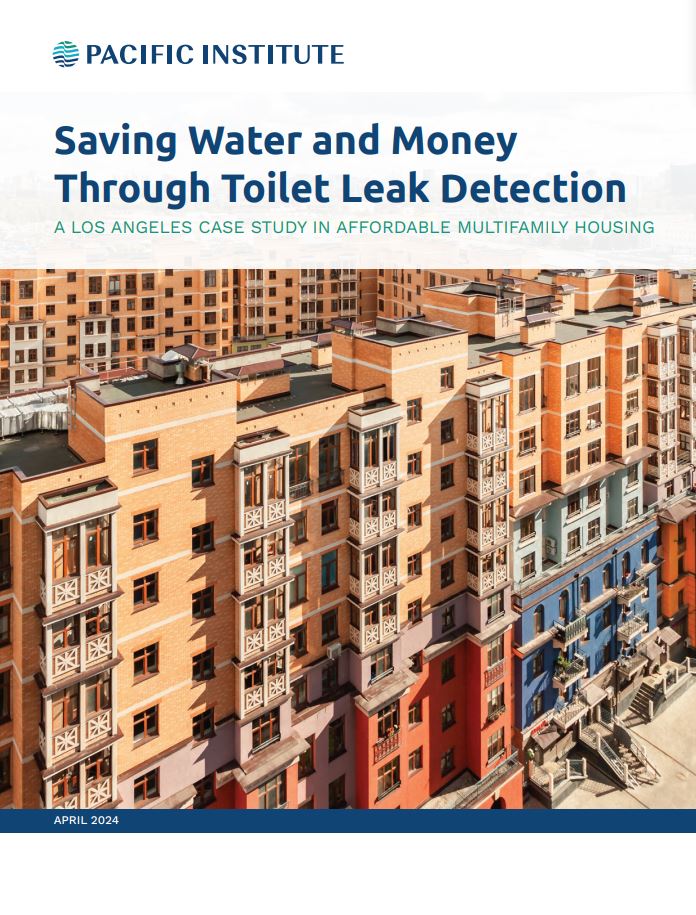
Saving Water and Money Through Toilet Leak Detection: A Los Angeles Case Study in Affordable Multifamily Housing
April 3, 2024 | publication
New Pacific Institute research finds toilet leak detection can offer significant water and cost savings at multifamily housing buildings in the United States, addressing a critical yet overlooked aspect of urban water efficiency.
Page 1 of 29
From the Blog
- Apr 22, 2025
- The Business Case for Investing in Nature: From Novel to the New Normal
- Mar 21, 2025
- World Water Day 2025: Pacific Institute Reaffirms its Commitment to Water Resilience
- Feb 27, 2025
- The Growing Threat of Catastrophic Flooding in Rural America
- Dec 10, 2024
- The Role of Metrics in Water and Wastewater Affordability Programs in the United States
- Dec 05, 2024
- Driving Global Water Resilience with the Pacific Institute’s Strategic Plan Through 2026


